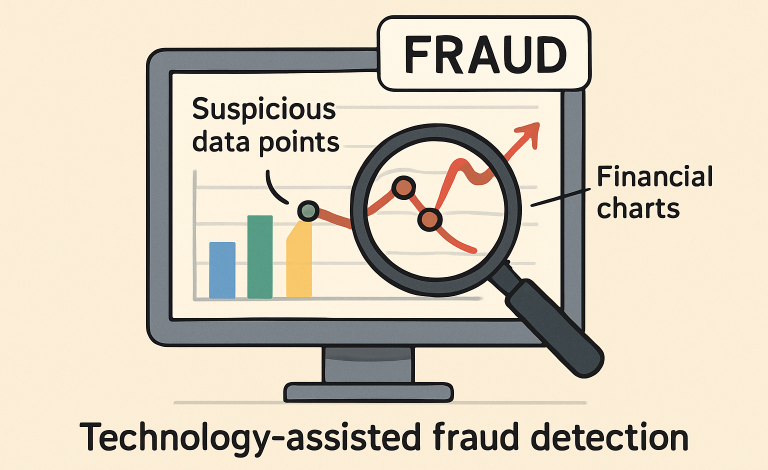How Modern Investors Stay Ahead of Securities Fraud

Recognizing the Evolving Nature of Securities Fraud
Securities fraud is not what it was a decade ago. Today’s fraudsters use sophisticated technology and exploit new market opportunities, making scams harder to detect and even more damaging for investors. There is a growing need for diligence and informed decision-making to minimize exposure to bad actors in traditional and digital markets. For investors in Washington or those needing guidance, a Washington Securities Fraud Lawyer offers invaluable expertise in navigating complex cases and protecting investments against novel threats.
Fraud schemes have adapted in response to increased regulatory scrutiny, big data, and evolving investor behavior. Some schemes are orchestrated through social media manipulation, while others employ advanced software to exploit vulnerabilities in trading algorithms. Despite this, understanding how these tactics develop is the first step toward recognizing warning signs early, ultimately shielding your portfolio from unnecessary risk.
Leveraging Technology for Fraud Detection
The technological arms race extends to fraud prevention just as much as it does to fraud itself. Artificial intelligence (AI) and machine learning are central to this defense, empowering investors to rapidly process complex data and flag suspicious transactions. For example, machine learning models can sift through historical market activity, uncovering anomalies often preceding fraudulent activity, such as insider trading or pump-and-dump schemes.
Fintech companies and brokerages now offer sophisticated monitoring tools for retail and institutional investors. These tools can analyze thousands of market signals per second, give real-time alerts, and even automate due diligence on proposed investments. While not foolproof, they raise the bar for fraudsters and give investors a crucial advantage in maintaining secure holdings.
See also: Personal Injury Law and Its Intersection with Premises Liability
Staying Informed Through Reliable Sources
Vigilance also means staying plugged into trusted information sources. Reliable financial news outlets, such as CNBC’s Markets section, provide timely updates on fraud trends, regulatory actions, and investor alerts. Scrutinizing official press releases from the Securities and Exchange Commission (SEC) or monitoring alerts from financial regulatory bodies can help you spot industry-wide red flags before they affect your investments.
Moreover, cross-referencing developing stories with data from major financial analytics platforms helps separate credible threats from media hype or misinformation. This approach ensures better decision-making and reduces reactivity to sensational headlines.
Implementing Robust Risk Management Strategies
Proactive risk management is the backbone of securities fraud prevention. Savvy investors craft diversified portfolios that do not rely disproportionately on any single asset or sector, reducing vulnerability to targeted scams. Conducting thorough due diligence before making investment decisions can uncover hidden risks, including dubious management practices or inconsistencies in public filings.
In addition to diversification, regular reviews of your portfolio and its underlying assets can identify shifts in risk levels over time. Establishing clear investment guidelines — including stop-loss limits, liquidity assessments, and periodic performance audits — ensures that investment activities are systematic and not driven by impulse or fear.
Understanding Regulatory Frameworks
A firm grasp of the laws and regulations governing securities markets is essential for every investor. Federal frameworks, such as the Securities Act of 1933 and the Securities Exchange Act of 1934, set baseline requirements for transparency, reporting, and fair dealing. State laws and regulations provide additional layers of investor protection, sometimes imposing higher standards or independent oversight.
Understanding investors’ rights and companies’ obligations enables prompt, informed action when violations arise. For those new to navigating these complexities, reputable legal and financial resources — such as Investopedia’s overview of securities fraud — are invaluable for learning how regulatory mechanisms work.
Engaging with Financial Advisors
Even the best-informed investors can gain a significant advantage by working with professional financial advisors. These experts offer more than just basic guidance—they bring a wealth of knowledge, experience, and analytical tools that can uncover details others might overlook. Financial advisors are key in helping investors define clear financial goals, assess risk tolerance, and create strategies that align with long-term objectives. They are particularly valuable when reviewing significant or complicated investments, performing thorough due diligence, and identifying red flags that could indicate fraud or unsound ventures. Financial advisors empower investors to make smarter, more secure decisions and protect their wealth more effectively by offering an objective perspective and access to industry insights.
Participating in Investor Education Programs
Investor education remains one of the strongest defenses against scams. Educational workshops, webinars, and programs offered by regulatory bodies and financial literacy organizations guide the recognition and avoidance of typical fraud schemes. Topics often include reading financial statements, detecting red flags in investment pitches, and psychological tactics used by fraudsters to pressure victims.
Staying committed to ongoing learning sharpens your investigative instincts and keeps you ahead of increasingly clever scam tactics. Resources like the FINRA Investor Education Foundation offer valuable tools and real-world case studies to boost market literacy.
Reporting Suspicious Activities
Spotting securities fraud is only the first step — rapid reporting is critical to prevent harm to yourself and the larger investment community. If you suspect a scam or witness fraudulent behavior, immediately contact regulatory authorities such as the SEC or your state attorney general’s office. Your action could save countless others from falling victim and help preserve the integrity of the capital markets.
Modern investors face evolving fraud threats, but are not powerless. Leveraging technology, staying well-informed, implementing robust precautions, and seeking professional advice collectively equip you to stay ahead of securities fraud and protect your hard-earned investments.







